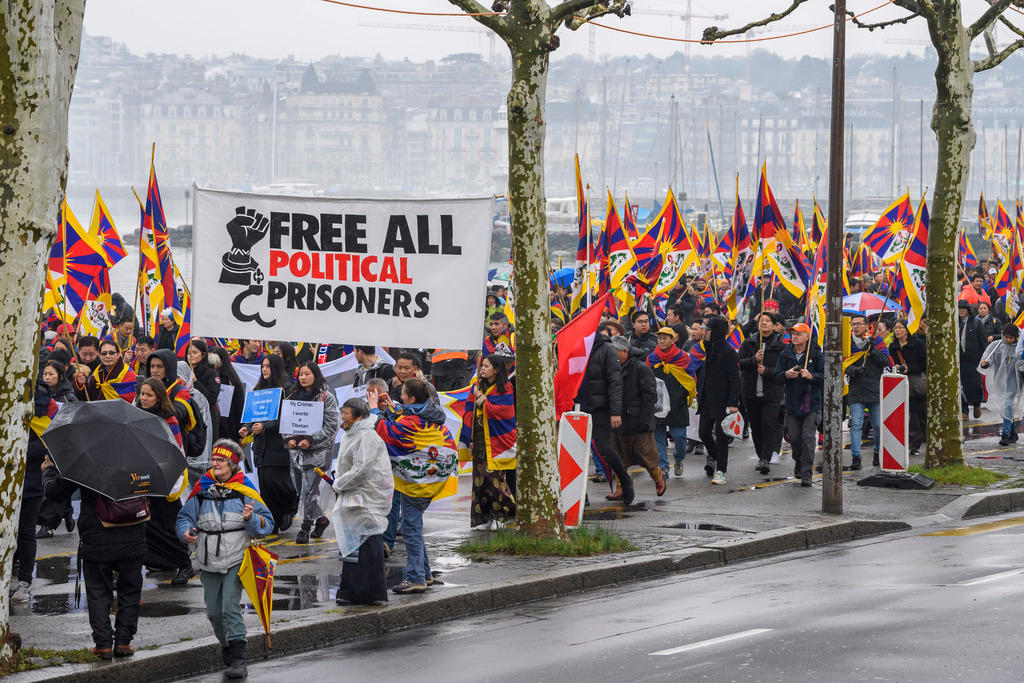
Tibetans in Switzerland demand more protection

The Tibetan community in Switzerland has warned the government that the increasingly close relationship between Bern and Beijing is having a negative effect on the fundamental rights of Tibetans in Switzerland.
In 2013, Switzerland and China signed a free-trade agreement which, according to a statement on Friday by the Society for Threatened PeoplesExternal link (STP), made no mention of human rights or the situation of minorities.
+ Read about Switzerland’s free-trade agreement with China
“The STP and Tibet organisations in Switzerland are concerned about the Chinese government’s increasing exertion of influence – also in Switzerland. In particular, concern has been caused by the violations of the right to free expression, the right to a distinct identity, the right to freedom of movement and the right to privacy,” the statement said.
Giving examples, the STP said it was not always possible in Switzerland to express an opinion on the human rights situation in Tibet, pointing to restrictions being imposed in connection with demonstrations, for example Chinese President Xi Jinping’s state visit to Bern in 2017.
In addition, it said it had become more difficult for Tibetans to obtain travel documents, also in Switzerland. “People whose applications for travel papers are refused or rejected by the Chinese authorities cannot leave Switzerland,” the STP wrote.
The group also alleged that China’s surveillance of the Tibetan diaspora in Switzerland – the largest in Europe – was increasing.
Tibetans in Switzerland
On October 7, 1950, the Chinese under Mao Zedong invaded Tibet.
A week after a failed bloody uprising in 1959, the 24-year-old Dalai Lama crossed the snowy Himalayas into India, followed by around 80,000 Tibetans.
The first refugees arrived in Switzerland in 1960, at the Pestalozzi Children’s Village in Trogen.
In 1963, Switzerland allowed in 1,000 Tibetan refugees. They were the country’s first non-European refugees.
Around 7,500 people of Tibetan descent live in Switzerland, constituting the largest Tibetan exile community in Europe.

In compliance with the JTI standards
More: SWI swissinfo.ch certified by the Journalism Trust Initiative




























You can find an overview of ongoing debates with our journalists here . Please join us!
If you want to start a conversation about a topic raised in this article or want to report factual errors, email us at english@swissinfo.ch.